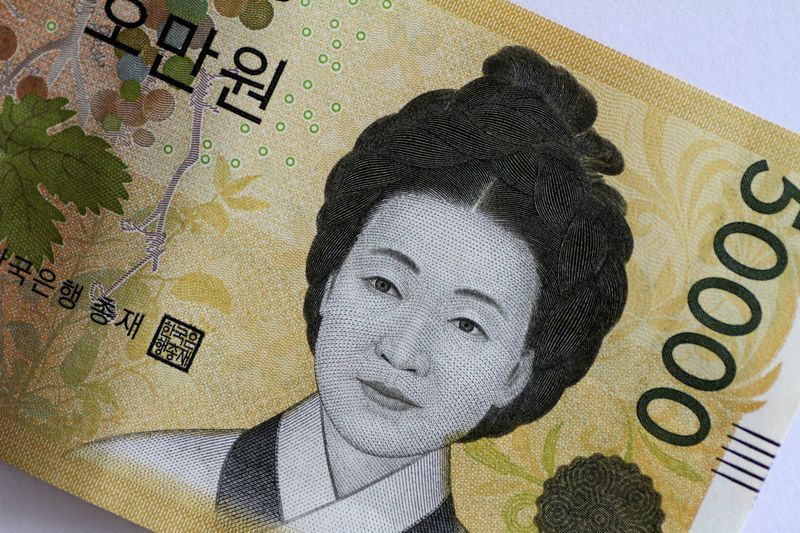By Jihoon Lee and Yena Park
SEOUL (Reuters) – The South Korean won fell to its weakest level in 15 years on Thursday, weighed down by risk-averse sentiment following the U.S. Federal Reserve’s cautious stance on further interest rate cuts and by domestic political uncertainty.
The won was trading at 1,448.9 per dollar in onshore trading as of 0518 GMT, after opening the session at 1,453.0 per dollar, down 0.96% from the day before and the weakest since March 16, 2009.
The U.S. central bank cut interest rates on Wednesday as expected, but Federal Reserve Chairman Jerome Powell said further cuts in borrowing costs now depend on further progress in reducing stubbornly high inflation.
US central bankers now predict they will cut interest rates by just two quarters of a percentage point next year, half a percentage point less than expected in September, with higher inflation forecasts for the first year of Donald Trump’s new administration.
The aggressive stance pushed the dollar higher and put downward pressure on the won, which was already under domestic political turmoil after President Yoon Suk Yeol ousted the short-lived martial law attempt earlier this month.
Taking into account the negative economic impact of the Dec. 3 martial law order, the Bank of Korea on Wednesday flagged downside risks to its economic growth forecasts for this year and next year.
So far in December, the won has weakened 3.9% against the dollar, widening losses for the third month in a row.
The won is the worst performing emerging Asian currency of the year, down 11% this year and is expected to post its worst year since 2008.
Ahead of the market opening on Thursday, South Korea’s finance minister said the government and central bank would take swift and bold measures to stabilize financial markets if volatility was deemed excessive.
“Authorities are suspected of defending the 1,450 figure, making it difficult to short the won around the level,” a local currency trader said.
To help ease pressure on the currency, the country’s Financial Services Commission has asked local banks to manage currency transactions and loans flexibly.

The Bank of Korea expanded its foreign exchange swap line with the National Pension Service, a market-stabilizing instrument that absorbs demand for dollars due to growing foreign investment by the world’s third-largest pension fund.
In the stock market, the benchmark fell as much as 2.5% as foreigners sold local shares.


